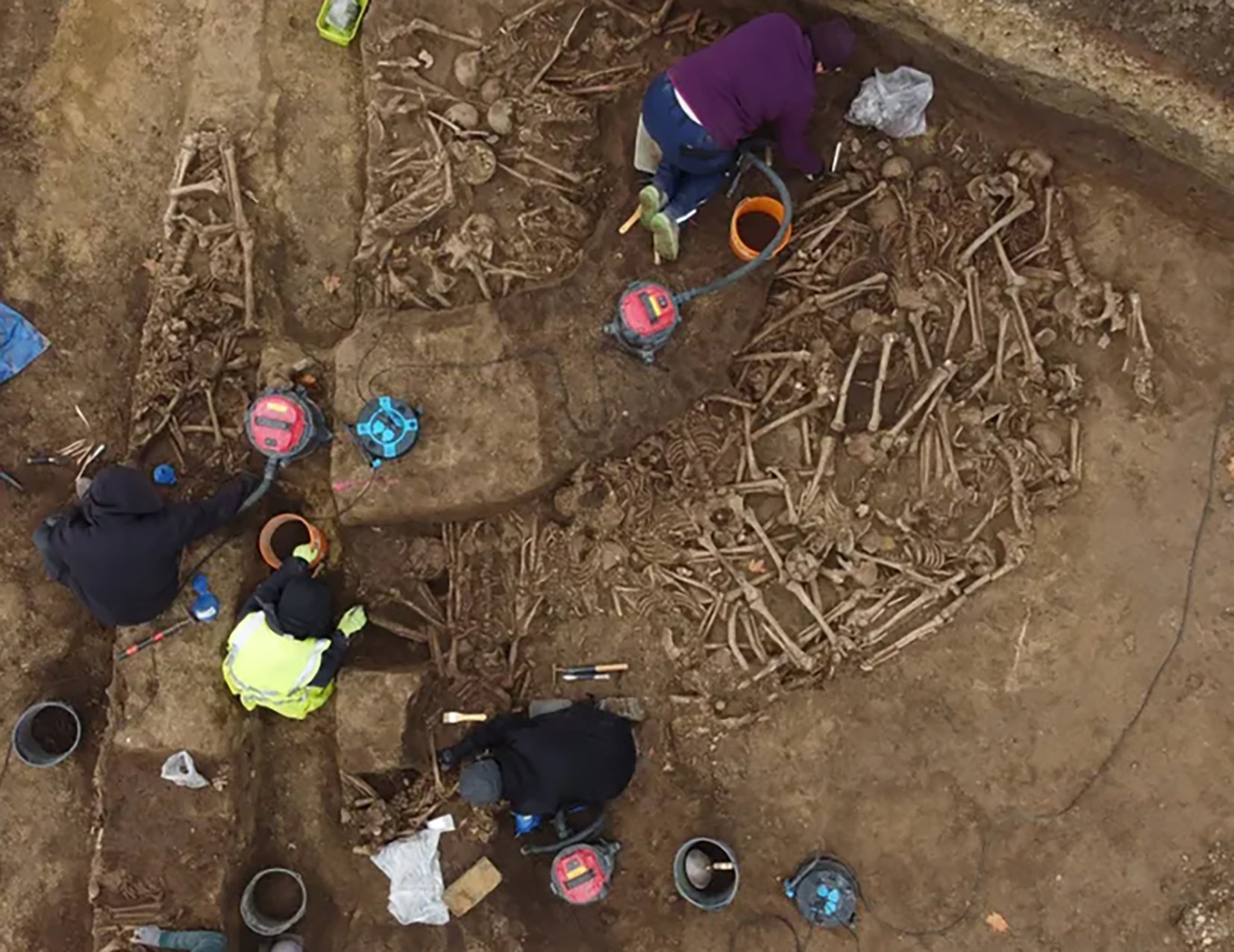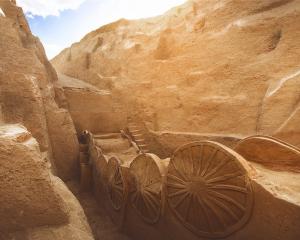
Elsewhere in the empire, the Romans faced constant wars along the entire length of their Danube frontier. So it was with particular interest that I have followed the excavations at a football pitch in the Viennese suburb of Simmering. Last summer, we stayed with son Tom just 2km away and I pedalled past it daily for my exercise. Imagine the shock when workers renovating the field encountered human remains. Archaeologists were called and they have so far uncovered 125 skeletons, all of them young males of fighting age who died in battle. Fragments of Roman armour and weaponry lay among the dead.
When Roman soldiers were killed, they were always cremated, but not these. Their bodies lay contorted and mixed together for they had been rapidly and summarily dumped in a death pit.
A Roman legion comprised 5200 men, and each had a resounding name. The Emperor Domitian ruled from 81-96 AD and historic records describe Germanic invasions across the Danube to plunder his province of Pannonia. Vienna, then known as Vindobona, was a key in the defensive screen along the course of the river. In the spring of 92AD, the Marcomanni crossed the Danube and massacred the XXI Legion Rapax "the Predator", founded over a century earlier by the Emperor Augustus.
Simmering football pitch lies just 3km south of the river. The logical conclusion is that the bones are those of the XXI legion, and they are unique. Their DNA will fascinate. And what happened to their Emperor, Domitian? He instituted a personality cult, his propaganda dominating military and religious affairs. He had himself nominated a perpetual censor, he who controlled public morality and became deeply unpopular with the Roman Senate. Does that political agenda sound familiar?
In 96AD he was assassinated by his own Praetorian Guard and the Senate condemned his memory to oblivion — a moral tale that resonates today.












